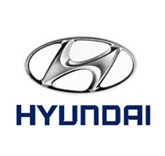SEOUL, Aug 10 (Reuters) - The head of South Korea's Hyundai Group will visit North Korea on Monday in what local media said would be a bid to win the release of a company worker detained since March for allegedly insulting the North's leaders. The trip comes after former U.S. President Bill Clinton flew to Pyongyang last week to secure the freedom of two U.S. journalists held since March after being accused of illegally entering the reclusive communist country.
Hyundai is hoping North Korea will follow its release of the journalists by freeing the worker, whose family name is Yoo, the South Korean daily JoongAng Ilbo quoted company and government sources as saying. It said the worker could be released as early as next week.
A company spokeswoman confirmed chairwoman Hyun Jeong-eun would visit North Korea on Monday but would not offer details about the purpose of her trip. Hyun is one of the few South Korean business leaders to have met the North's leader Kim Jong-il.Yoo has been held at a joint factory park where he worked in the North's border city of Kaesong. The park is run by Hyundai Group affiliate Hyundai Asan.The park, where about 100 South Korean firms use cheap North Korean labour and land to make goods, is the only major joint economic project between the two Koreas, who share one of the world's most militarised borders.The case has been a sore point in ties between the Koreas, which have worsened in the past year after South Korean President Lee Myung-bak ended unconditional handouts to the impoverished state and linked aid to moves the North makes to decrease its military threats.
The release of the worker could ease friction on the Korean peninsula and assuage concerns among investors that tensions might spark a conflict in the economically vital Northeast Asia region.The release of the two U.S. journalists has increased pressure on Lee to free the Hyundai worker and more than 1,000 other South Koreans in the North who were either kidnapped by the state or not released after the 1950-53 Korean War ended.(Reporting by Jon Herskovitz and Christine Kim; Editing by Jonathan Hopfner and Dean Yates)



No comments:
Post a Comment